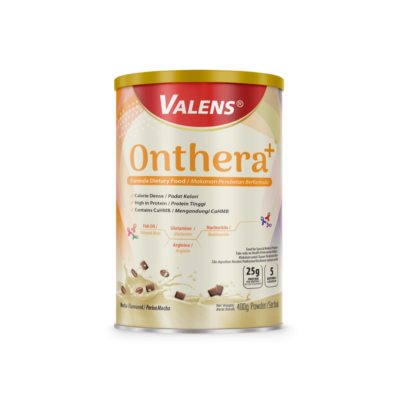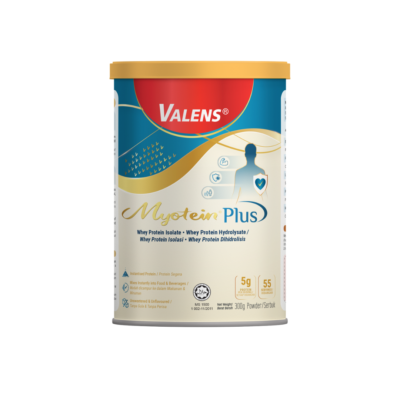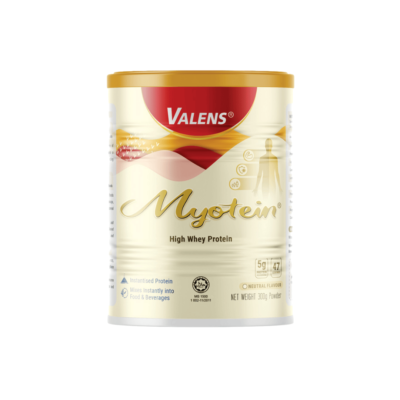This health article has been professionally reviewed by Dt Jennifer Wu, a registered dietitian of the Malaysian Dietitians’ Association (MDA).
Cancer patients frequently experience chronic inflammation and weakened immune function because of both the disease and its treatment, which can impact treatment outcome (1).
Immunonutrition refers to the strategic use of specific nutrients to modulate the immune system, aiming to enhance patient outcomes, particularly in individuals with cancer (2).
This approach has been associated with improved well-being, reduced complications, and decreased mortality risk among cancer patients.
How Immunonutrition Works
Immunonutrition involves the supplementation of specific nutrients known to influence immune and inflammatory responses. Key immunonutrients include (2):
- Arginine: An amino acid that supports T-cell function and enhances immune responses.
- Glutamine: Vital for lymphocyte proliferation and maintaining intestinal mucosal integrity.
- Omega-3 Polyunsaturated Fatty Acids (PUFAs): Possess anti-inflammatory properties and can modulate immune cell function.
- Nucleotides: Essential for DNA and RNA synthesis, supporting rapid cell division and immune responses.
Benefits of Immunonutrition in Cancer Care
- Enhanced Immune Function: Cancer and its treatments can impair immune function, increasing susceptibility to infections. Immunonutrition can bolster immune responses, aiding in the body’s defense mechanisms. (2)
- Reduction in Postoperative Complications: In surgical oncology, immunonutrition has been linked to decreased postoperative infections and shorter hospital stays. For instance, a study on patients undergoing gastrointestinal surgery found that those receiving immunonutrition had significantly fewer postoperative infections compared to those on standard nutrition (2, 3).
- Improved Treatment Tolerance: Patients undergoing chemotherapy or radiotherapy often experience side effects that can lead to treatment interruptions. Immunonutrition has been shown to alleviate some of these adverse effects, enabling patients to better tolerate and complete their treatment regimens. (4)

Getting the right nutrients sufficiently is ever more crucial for a patient battling cancer, but sometimes it’s difficult for them to meet dietary needs due to other complications and lack of awareness.
Clinical Evidence Supporting Immunonutrition
A comprehensive review highlighted the potential of immunonutrition in cancer care, noting its role in reducing inflammatory responses and enhancing immune function. The review emphasized the need for well-designed studies to determine optimal administration strategies and patient populations that would benefit most from immunonutrition (2).
Another study explored the role of nutrition in harnessing the immune system against cancer. The findings underscored the significance of specific nutrients in modulating immune responses, suggesting that dietary interventions could complement traditional cancer therapies. (6)
Optimizing Immunonutrition in Cancer Care
To maximize the benefits of immunonutrition, the following strategies should be implemented:
- Implement Individualized Nutrition Plans: Medical nutrition interventions must be tailored to each patient’s specific needs, factoring in cancer type, stage, treatment regimen, and overall health status. The ESPEN guidelines emphasize the necessity of personalized nutritional assessment and intervention to address the diverse needs of cancer patients effectively (7,8).
- Determine Optimal Timing and Composition: Clinicians should establish evidence-based protocols to optimize the timing, composition, and duration of immunonutrition interventions. Ongoing research should guide best practices for integrating these strategies into patient care.
- Integrate Immunonutrition with Conventional Therapies: Healthcare providers should incorporate immunonutrition as a complementary approach alongside standard cancer treatments. Understanding its interactions with chemotherapy, radiotherapy, and surgical recovery will help improve patient outcomes and treatment tolerability.
In conclusion, immunonutrition represents a valuable adjunct in cancer care, offering potential benefits in enhancing patient well-being, reducing complications, and lowering mortality risk.
Ongoing research and well-designed clinical trials are crucial to fully elucidate its role and establish standardized guidelines for its implementation in oncology practice.
References
- Shalapour, S., & Karin, M. (2015). Immunity, inflammation, and cancer: an eternal fight between good and evil. The Journal of clinical investigation, 125(9), 3347–3355. https://doi.org/10.1172/JCI80007
- Liu, Y., Li, F., Hu, J. et al. The application of immunonutrition in patients with cancer: current status and future perspectives. Holist Integ Oncol 3, 45 (2024). https://doi.org/10.1007/s44178-024-00112-w
- Weimann, A., Braga, M., Carli, F., Higashiguchi, T., Hübner, M., Klek, S., Laviano, A., Ljungqvist, O., Lobo, D. N., Martindale, R. G., Waitzberg, D., Bischoff, S. C., & Singer, P. (2021). ESPEN practical guideline: Clinical nutrition in surgery. Clinical nutrition (Edinburgh, Scotland), 40(7), 4745–4761. https://doi.org/10.1016/j.clnu.2021.03.031
- Ma, X., Pei, B., Wu, N., Wang, C., Yu, Y., & Yang, W. (2024). Current research and future prospects of immunonutrition in gastrointestinal malignancies. Frontiers in Immunology, 15. https://doi.org/10.3389/fimmu.2024.1420415
- Akcam, T. I., Tekneci, A. K., Kavurmaci, O., Ozdil, A., Ergonul, A. G., Turhan, K., Cakan, A., & Cagirici, U. (2023). The significance of immunonutrition nutritional support in patients undergoing postoperative adjuvant chemotherapy for lung cancer: Case–control study. World Journal of Surgical Oncology, 21, Article 183. https://doi.org/10.1186/s12957-023-03084-1
- Xiaogang, H., Sharma, M., saif, I. et al. The role of nutrition in harnessing the immune system: a potential approach to prevent cancer. Med Oncol 39, 245 (2022). https://doi.org/10.1007/s12032-022-01850-5
- Arends, J., Bachmann, P., Baracos, V., Barthelemy, N., Bertz, H., Bozzetti, F., Fearon, K., Hütterer, E., Isenring, E., Kaasa, S., Krznaric, Z., Laird, B., Larsson, M., Laviano, A., Mühlebach, S., Muscaritoli, M., Oldervoll, L., Ravasco, P., Solheim, T., Strasser, F., … Preiser, J. C. (2017). ESPEN guidelines on nutrition in cancer patients. Clinical nutrition (Edinburgh, Scotland), 36(1), 11–48. https://doi.org/10.1016/j.clnu.2016.07.015
- Fearon, K., et al. (2011). Definition and classification of cancer cachexia: An international consensus. The Lancet Oncology, 12(5), 489-495. https://doi.org/10.1016/S1470-2045(10)70218-7










